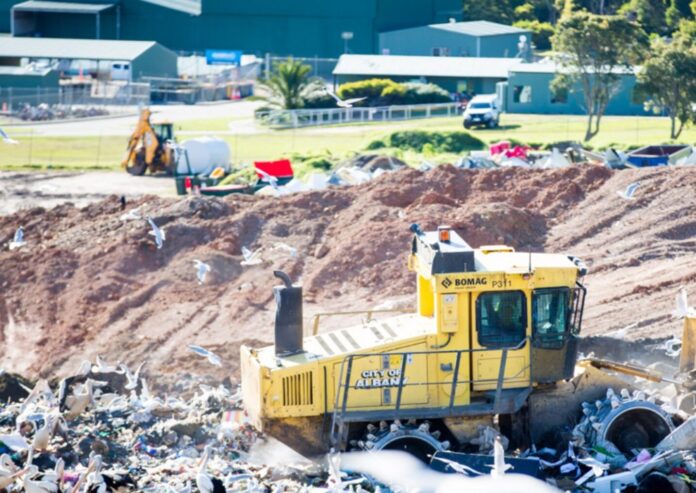WA’s City of Albany Council is making progress towards a more sustainable future by partnering with methane abatement company, LMS Energy, to install an innovative biogas system at a local waste facility.
Greenhouse gases will soon be captured and destroyed at the Hanrahan Road Waste Facility thanks to the deal with LMS Energy to reduce methane emissions.
Once installed, the system will extract and destroy methane, a potent greenhouse gas that naturally forms as organic matter decomposes in the landfill.
Council says the long-term contract signed with LMS aims to destroy up to 850,000 cubic metres of methane each year, which is the equivalent of removing 7,500 average Australian cars from the road per year or growing 300,000 trees across a 10-year period.
LMS Energy’s Group Manager for Clients, Jason Dockerill said methane destruction at landfills is an important climate strategy because methane is a highly potent greenhouse gas.
“Methane is 28 times more damaging than carbon dioxide at trapping heat in the atmosphere,” Mr Dockerill said.
“A series of wells will be drilled and installed throughout the landfill site to extract harmful greenhouse gases such as methane. A system of pipes will then transport the methane to LMS Energy’s industry-leading biogas flare, where they’re safely destroyed.
“The flare will be engineered and manufactured in-house by LMS. Without this, the methane would primarily be released into the atmosphere.”
Mayor, Greg Stocks said it will be the first time greenhouse gas emissions have been captured at the Hanrahan Waste Facility landfill site.
“The City’s landfill site receives 30,000 tonnes of waste each year where a portion of this is made up of organic matter which will eventually decompose and produce methane,” Mayor Stocks said.
“City of Albany is doing its bit to reduce its carbon footprint and help curb methane emissions and slow the rate of global warming.
“Together, we are working to reduce the environmental impact of waste and preserve our planet for generations to come.”


